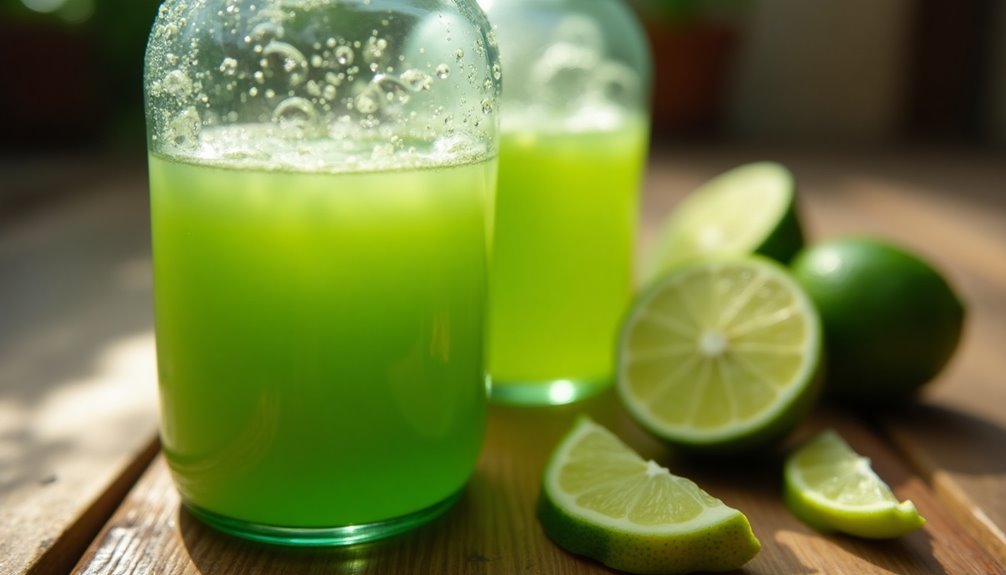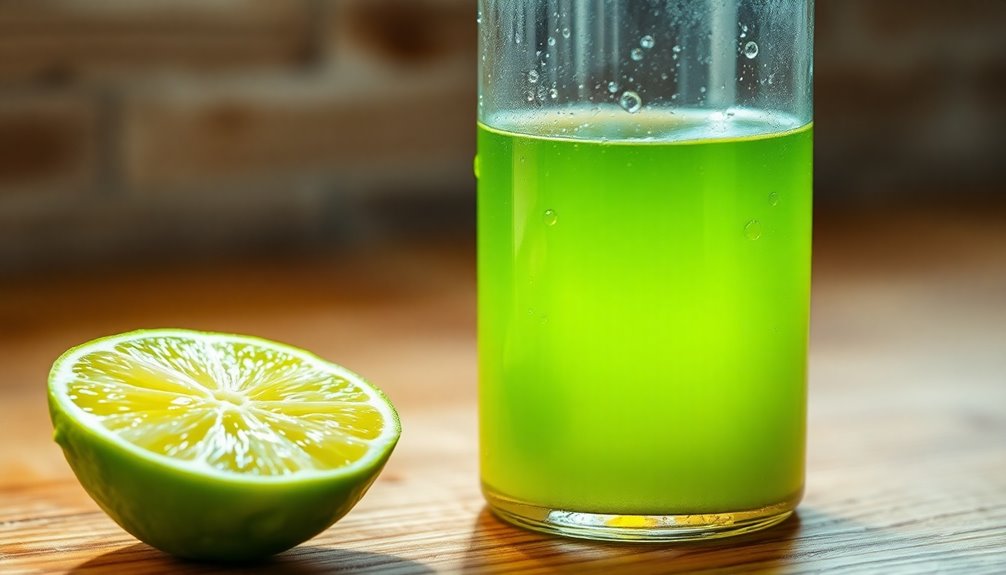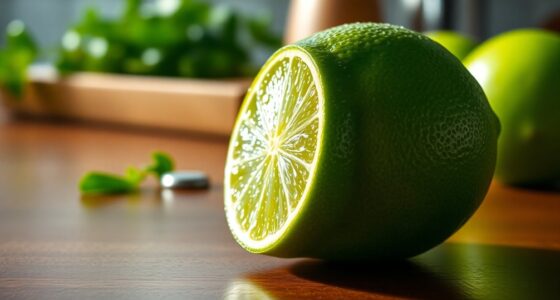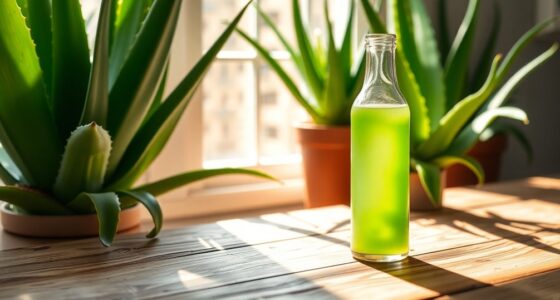Opened lime juice lasts about 1 to 2 weeks in the fridge. Be sure to keep it tightly sealed to maintain freshness. Even though it might be safe to consume after that time, the flavor can start to fade. Always check for off odors, bad flavors, or visible mold before using your lime juice. Staying aware of these signs will help you enjoy the best taste possible for your recipes and drinks. You might find additional tips helpful too! If you’re wondering how much juice from a lime you can expect, typically one medium lime yields about 2 tablespoons of juice. This can vary based on the size and ripeness of the lime, so it’s a good idea to have a few on hand for your needs. Remember, fresh lime juice not only enhances flavor but also provides a vibrant acidity that can elevate various dishes and cocktails.
Key Takeaways
- Opened lime juice should be refrigerated to maintain quality and freshness.
- It typically lasts about 1 to 2 weeks after opening when stored properly.
- Always check the label for specific storage instructions and expiration dates.
- Signs of spoilage include off odors, unpleasant flavors, and visible mold.
- For the best flavor, use lime juice promptly rather than storing it for extended periods.

Have you ever wondered how long opened lime juice really lasts? If you've just cracked open a bottle of that zesty green goodness, it's good to know how to keep it fresh. Generally, opened lime juice should be refrigerated to ensure it lasts as long as possible. For optimal freshness, you can expect it to last about 1 to 2 weeks once opened. While store-bought lime juice can remain safe to consume for several weeks after opening, the flavor may diminish over time, so it's best to use it before that happens.
When you buy store-bought lime juice, always check the label for specific storage instructions and expiration dates. This isn't just a suggestion; it's essential for maintaining the quality of the juice. Even if you don't see a specific date, knowing that the juice is best used within a couple of weeks can help you plan your recipes and cocktails accordingly. Just because it's still safe to consume doesn't mean it'll taste just as good after a month in the fridge.
One of the key factors in prolonging the life of your opened lime juice is proper sealing. Make sure the cap is tightly secured after each use. This simple act can help prevent air from getting into the bottle, which can lead to spoilage.
Additionally, if you've stored it properly in the fridge, you're already doing wonders for its longevity. Keeping it in a cool, dark place inside the refrigerator plays a significant role in maintaining its quality.
Keep an eye out for signs of spoilage in opened lime juice. If you notice any off odors, unpleasant flavors, or even visible mold, it's time to toss that bottle. These signs are clear indicators that the juice has gone bad, and it's better to be safe than sorry when it comes to consuming potentially spoiled food products. Trust your senses; if it doesn't smell or taste right, don't risk it.
As you enjoy your lime juice in cocktails, marinades, or even just a splash in your water, remember that it's always best to use it while it's fresh. The vibrant flavor of fresh lime juice is one of its best attributes, and letting it sit too long can compromise that.
Frequently Asked Questions
How to Tell if Lime Juice Has Gone Bad?
To tell if lime juice has gone bad, start by smelling it; if it has an off or funky odor, it's time to toss it.
Next, taste a bit; if it lacks sourness or tastes bitter, don't use it.
Look for visible signs too—any mold or strange particles floating means you should discard it immediately.
While color changes can happen, focus on these other signs for the best judgment.
How Long Is Lime Good After Opening?
Picture a vibrant lime, its zestful green skin glistening in the sun.
Once you crack it open, that freshness starts to fade. You'll want to use your opened lime juice within 1-2 weeks for the best flavor.
Keep it in the fridge, tightly sealed, to preserve its tangy essence.
Always trust your senses; if it smells off or tastes strange, it's time to say goodbye to that once-zesty elixir.
How Long Is Key Lime Juice Good After Opening?
When you open key lime juice, it's best to consume it within 1-2 weeks for optimal flavor.
Store it in the fridge, and always check for spoilage signs like off odors or strange flavors before using it.
If you think you won't use it within that timeframe, consider freezing it in ice cube trays.
This way, you can enjoy it for up to four months without losing its freshness.
How Long Does Bottled Lemon Juice Last Once Opened?
Think of bottled lemon juice as a delicate flower; once it's opened, it needs care.
After you crack that seal, it should live in the fridge for about 1-2 weeks for peak freshness.
While the expiration date suggests a timeline, it might still be safe to use beyond that if you store it correctly.
Always check for off odors or mold—your senses are your best friends in keeping it fresh!
Conclusion
In conclusion, once you've opened that bottle of lime juice, it'll stay fresh in the fridge for about 3 to 4 weeks. Think of it like a vibrant party guest; it's lively and refreshing at first but starts to lose its charm over time. To get the most out of your lime juice, keep it tightly sealed and stored properly. So, enjoy it while it lasts, and don't let it go to waste!
Cindy thoroughly researches juicing trends, techniques, and recipes to provide readers with practical advice and inspiration. Her writing style is accessible, engaging, and designed to make complex concepts easy to understand. Cindy’s dedication to promoting the advantages of juicing shines through her work, empowering readers to make positive changes in their lives through the simple act of juicing.











